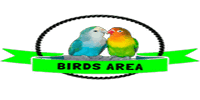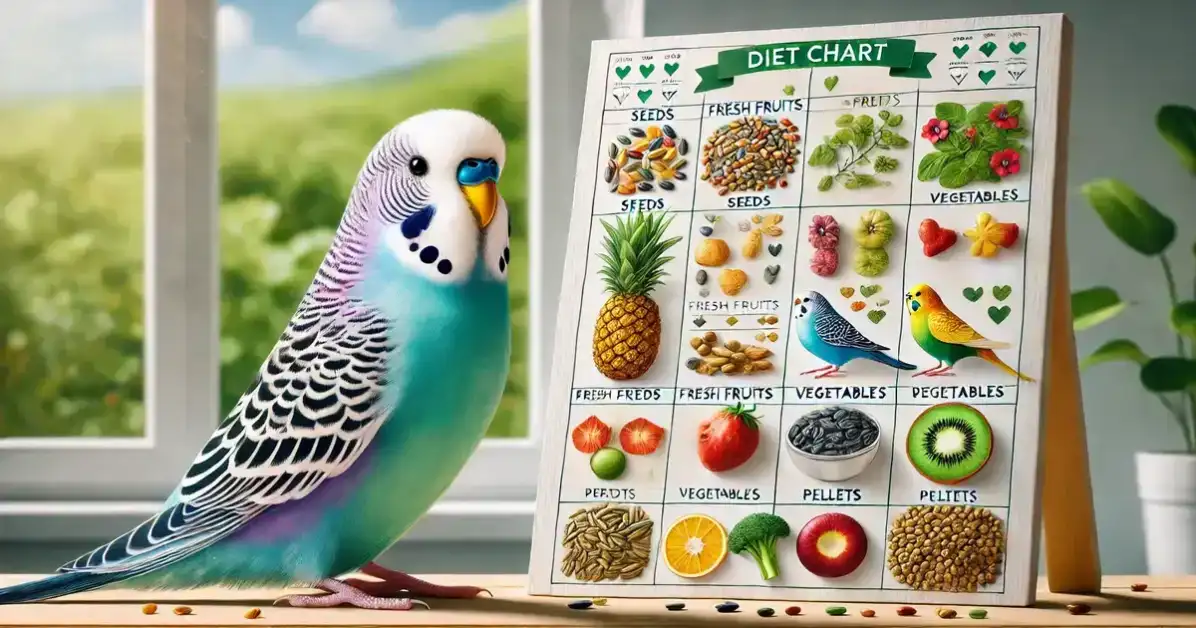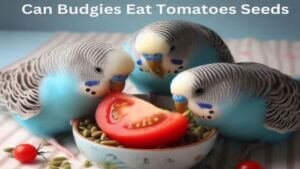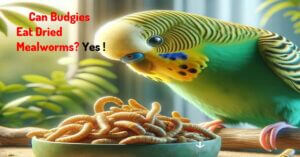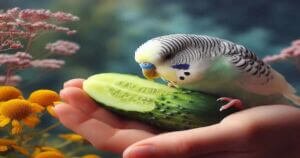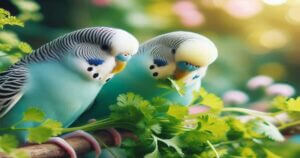Budgie Diet Chart
Budgies, also known as parakeets, are small, active birds with big personalities. Feeding them isn’t just about filling a bowl with seeds; it’s about understanding their nutritional needs and ensuring they get a balanced diet for a long, healthy life.
Whether you’re a new budgie owner or looking to improve your bird’s diet, this budgie diet chart will cover everything you need to know.
What Makes a Balanced Diet for Budgies?
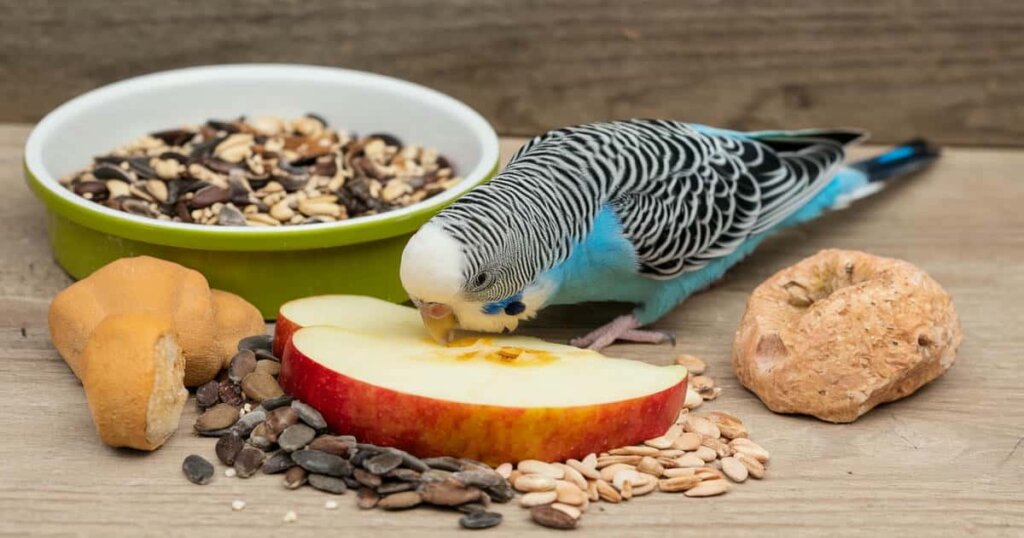
Budgies are omnivores, but their primary diet consists of grains, seeds, and vegetation. In the wild, they forage for a variety of foods, which provides them with the nutrients they need.
Replicating this balance at home ensures your bird thrives.
Core Components of a Budgie Diet
- Pellets (60-70%): High-quality pellets are specifically formulated for budgies and contain essential nutrients that seeds alone can’t provide.
- Seeds (10-20%): While seeds are a favourite, they’re high in fat and should be offered in moderation.
- Vegetables (10-15%): Fresh, leafy greens and colourful vegetables like carrots, broccoli, and spinach are excellent sources of vitamins and minerals.
- Fruits (5-10%): Fruits like apples (without seeds), berries, and melons add variety and nutrients but should be limited due to their sugar content.
- Protein (Occasionally): Small amounts of cooked egg or quinoa provide extra protein, especially during molting or breeding.
Why Proper Nutrition is Crucial
The right diet impacts every aspect of your budgie’s life. Poor nutrition can lead to obesity, vitamin deficiencies, and even behavioural problems. A well-fed budgie is more energetic, playful, and sociable.
Here are Key Benefits of a Balanced Diet To Budgie
1. Shiny Feathers and Bright Eyes
A healthy diet helps maintain vibrant feathers and clear, alert eyes. Vitamin A from vegetables like carrots and peppers supports their overall appearance.
2. Boosted Energy Levels
Budgies are active by nature. The right mix of proteins, carbs, and fats keeps them chirping and playful all day long.
3. Longer Lifespan
Budgies with a balanced diet often live up to 10-15 years, whereas poor nutrition can shorten their lives significantly
Sample Budgie Diet Chart
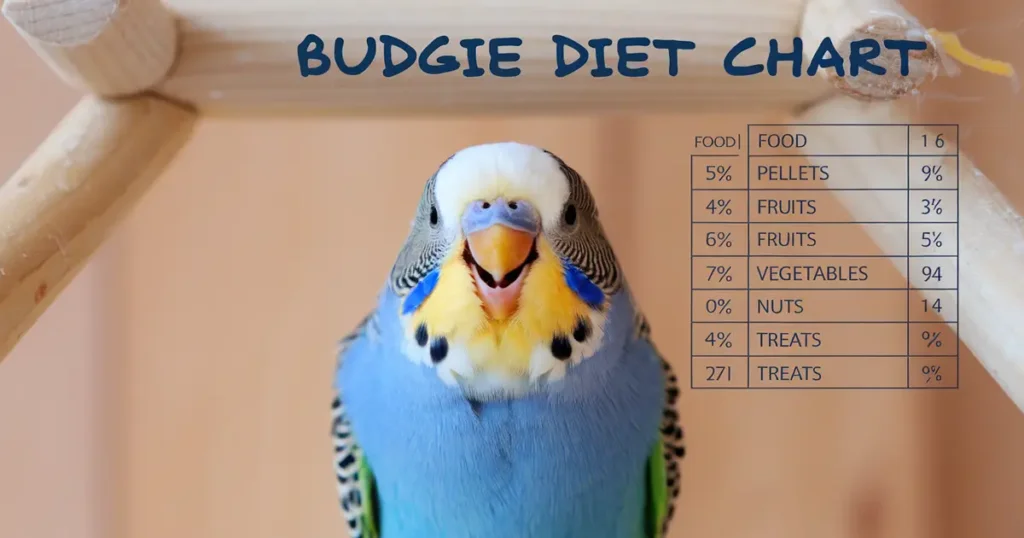
This weekly feeding plan provides a clear structure for your budgie’s meals.
Daily Routine
- Morning: Start with pellets and a few chopped vegetables like carrots or spinach.
- Afternoon: Offer a small portion of seeds or millet as a treat.
- Evening: Provide fresh water and a piece of fruit, such as an apple slice or a few blueberries.
Weekly Schedule
| Day | Main Meal | Snacks | Extras |
|---|---|---|---|
| Monday | Pellets + spinach | Millet spray (sparingly) | Fresh water |
| Tuesday | Pellets + broccoli | Seed mix (1 teaspoon) | Small apple slice |
| Wednesday | Pellets + carrots | Herb sprig (parsley) | Cooked egg (tiny bit) |
| Thursday | Pellets + zucchini | Seed mix | Quinoa (unsalted) |
| Friday | Pellets + kale | Millet spray | Blueberries (2-3) |
| Saturday | Pellets + mixed veggies | Basil leaves | Cooked rice |
| Sunday | Pellets + broccoli & carrot | Small seed treat | Fresh water |
Foods Budgies Must Avoid
Some foods are toxic or harmful to budgies and should never be offered.
Here are harmful Foods
- Avocado: Contains persin, which can cause heart and respiratory issues.
- Chocolate: Toxic to their digestive and nervous systems.
- Caffeine: Found in tea, coffee, and energy drinks, it’s highly dangerous.
- Onions and Garlic: Can damage red blood cells, leading to anaemia.
- Alcohol: Extremely toxic, even in small amounts.
How to Introduce New Foods
Budgies can be cautious about new foods, but patience is key.
- Start Small: Mix a small amount of the new food with their regular diet.
- Be Consistent: Offer the new food daily until they get used to it.
- Use Positive Reinforcement: Praise or interact with your bird when they try the new food.
It may take days or weeks for your budgie to accept a new food, so don’t give up.
Treats and Snacks
Treats are a great way to bond with your budgie, but moderation is essential.
- Millet Sprays: A favourite but should be limited to once or twice a week.
- Herbs: Safe options include parsley and basil.
- Cooked Egg: A protein-rich snack, especially helpful during molting.
- Cooked Grains: Offer plain quinoa, brown rice, or oats occasionally.
Hydration and Supplements
Fresh water is as important as food. Change it daily to ensure cleanliness. You can also add a bird-safe vitamin supplement once a week to boost their nutrition. Read- What Kind of Water Do Budgies Drink?
Monitoring Your Budgie’s Health
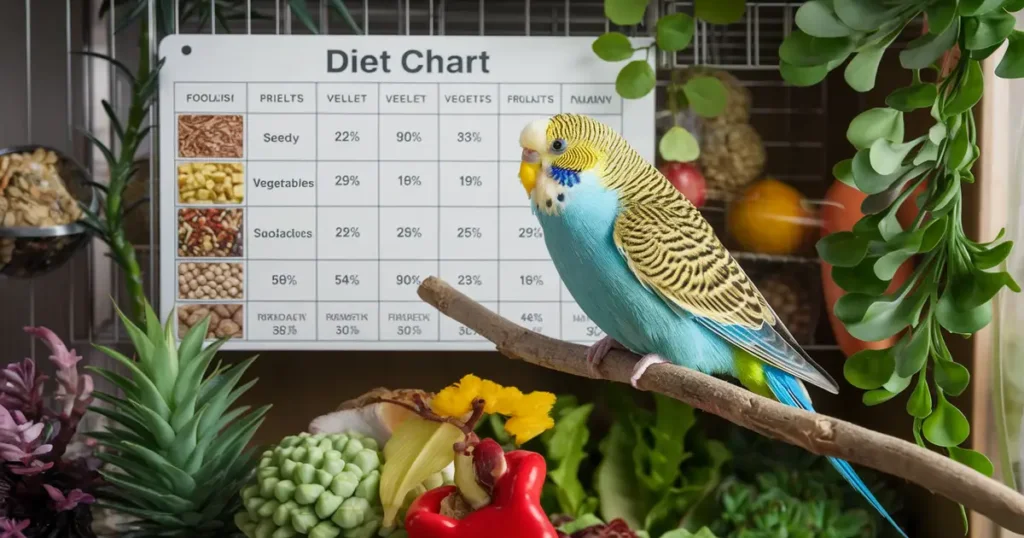
A proper diet is the first step to keeping your budgie healthy, but observation is equally important.
Signs of Good Health
- Bright eyes and smooth feathers.
- Active and curious behaviour.
- Firm droppings with a white centre.
Warning Signs
- Fluffed-up feathers for extended periods.
- Lethargy or lack of appetite.
- Discoloured or watery droppings.
If you notice any of these symptoms, consult an avian vet immediately.
Personal Experience: The Joy of Feeding Budgies
Feeding your budgie isn’t just about meeting their physical needs—it’s a way to connect with them. I remember the first time I offered my budgie a piece of apple. He was hesitant, tilting his head as if deciding whether to trust me.
When he finally nibbled on it, his chirps of delight made my day. Watching them explore new foods is a rewarding experience that deepens your bond.
FAQs About Budgie Diet Chart
1. How much food should I give my budgie daily?
A budgie needs about 1 to 2 tablespoons of pellets daily. Add a small portion of fresh vegetables and fruits as snacks to balance their diet.
2. Can budgies eat cooked foods like rice or pasta?
Yes, budgies can eat small portions of plain, cooked rice or pasta. Ensure it’s unsalted, unseasoned, and served in moderation as an occasional treat.
3. How often should I offer fresh vegetables and fruits?
Fresh vegetables can be offered daily, while fruits should be given 2-3 times a week due to their high sugar content. Always remove leftovers promptly.
4. Are all seeds safe for budgies to eat?
Budgies can eat a variety of seeds, but avoid those treated with chemicals or meant for planting. A mix of safe seeds like millet and canary seeds is best.
5. Do budgies need supplements in their diet?
Most budgies eating a balanced diet of pellets, seeds, and fresh produce don’t need supplements. Occasionally, calcium-rich cuttlebone or vitamins can help.
Final Thoughts
Feeding your budgie a balanced diet is one of the most important things you can do as a pet owner. By following this budgie diet chart, you’ll ensure your bird stays healthy, active, and full of life. Remember, a well-fed budgie is a happy budgie, and their joy will brighten your days.
If you found this guide helpful, share it with fellow bird enthusiasts. Together, let’s keep our budgies thriving.
Read More
- How to Make Budgies Eat Soft Food?
- Can Budgies Eat Cooked Pasta? Expert Advice
- Can Budgies Eat Kiwi Fruit Seeds? Good or Bad Revealed
- Can Budgies Eat Peanuts Raw Truely?
- Can Budgies Eat Pine Nuts?
- Can Budgies Eat Brussel Sprouts?
Hello Dear, I'm Poli Kolymnia, owner of many birds (including budgies).
With a deep passion for these feathered companions, I'm here to share my expertise and extensive knowledge on birds care.
My articles cover essential topics like diet, housing, care, and health, providing practical tips to help you create a happy and thriving environment for your birds.
